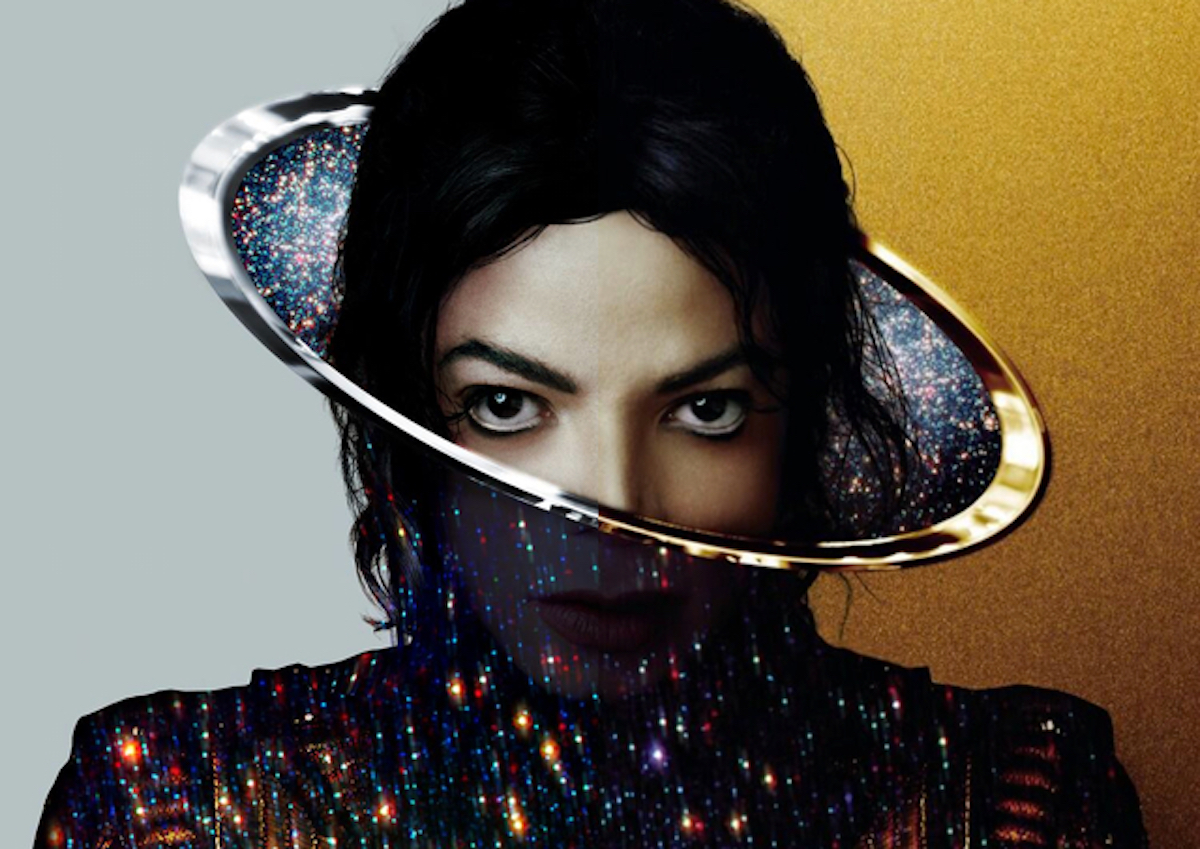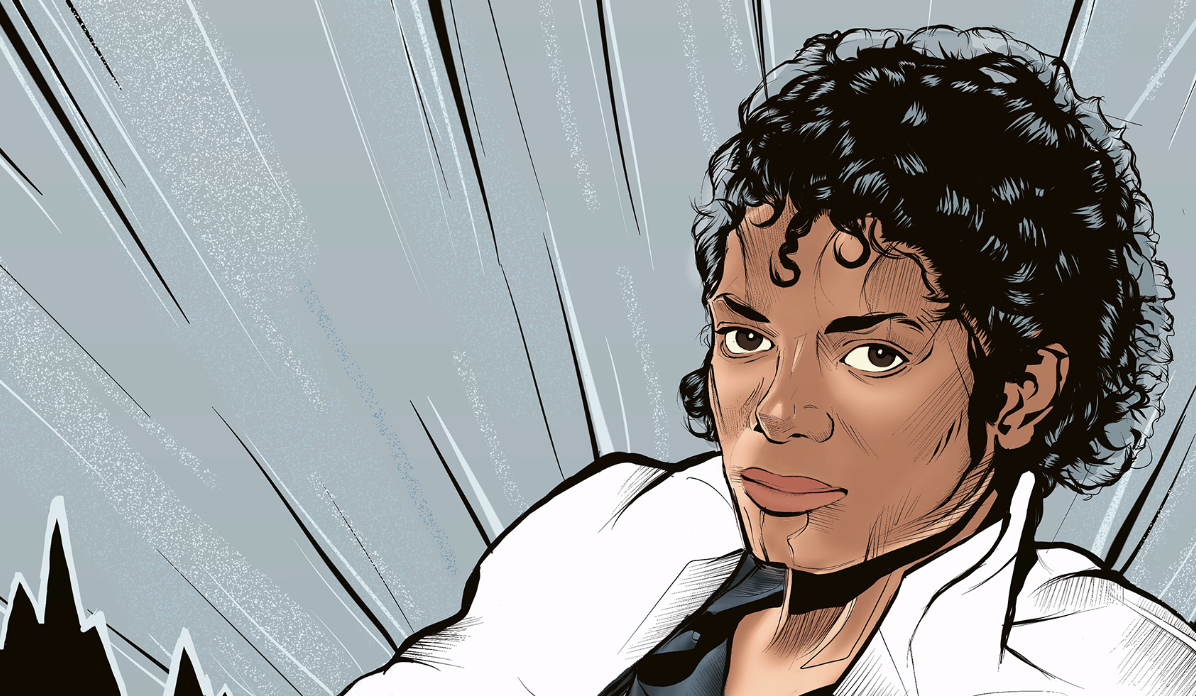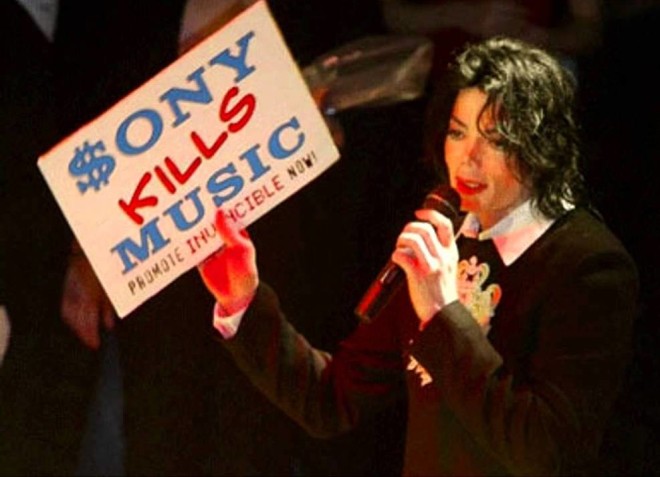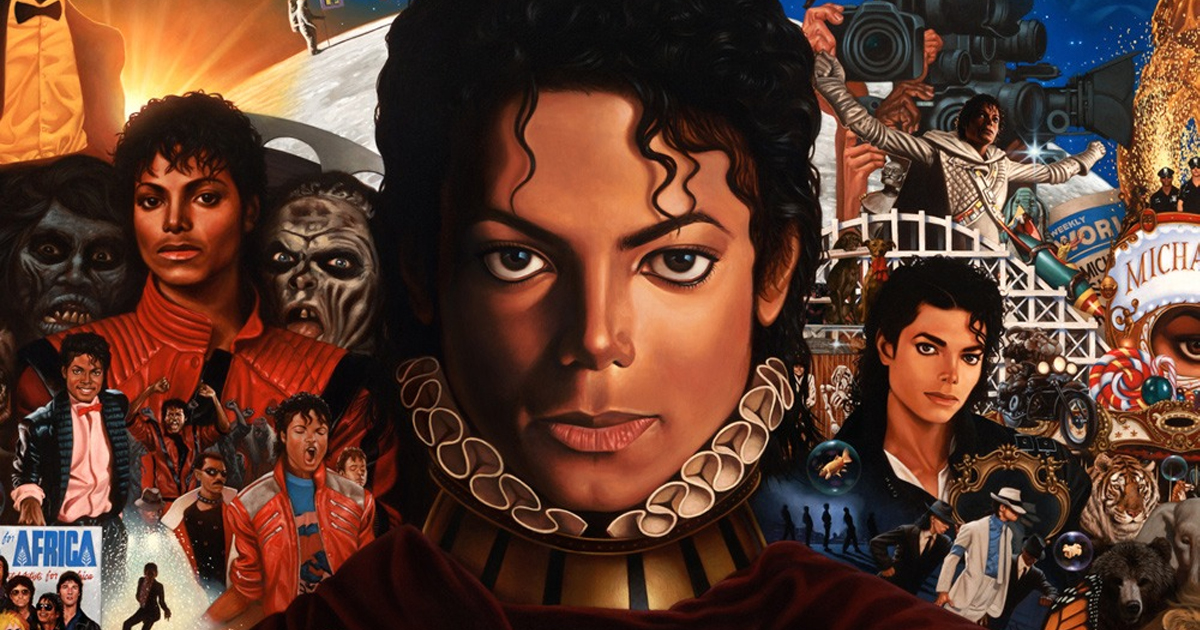Michael Jackson
Tracklist for Standard Version of Michael Jackson ‘XSCAPE’ Album Officially Confirmed
Published
10 years agoon

The track list for the standard version of the upcoming Michael Jackson album ‘XSCAPE’ has finally been officially confirmed – weeks after fans first figured it out for themselves.
‘XSCAPE’ features eight previously-unreleased Michael Jackson tracks spanning two decades – recorded between 1980 and 1999. These eight tracks have been revisited and “contemporized” by producers including Timbaland, Jerome “J-Roc” Harmon, Rodney Jerkins, Stargate, and Giorgio Tuinfort.
The songs on the ‘XSCAPE’ standard version are:
- Love Never Felt So Good
- Chicago (She Was Lovin’ Me)
- Loving You
- A Place With No Name
- Slave To The Rhythm
- Do You Know Where Your Children Are
- Blue Gangsta
- Xscape
Four versions of ‘XSCAPE’ will be available:
- Standard version (CD)
- Deluxe Jewel Case O-Card version (CD + DVD)*
- Deluxe Softpack version (CD, DVD + Poster)*
- Vinyl version (LP)
* The Deluxe versions of ‘XSCAPE’ will include 8 remixed tracks, the same 8 tracks in their original form (as Jackson last worked on them during his life), an unknown bonus tracks and two videos.
As previously reported, the iHeart Radio Music Awards will premiere one of the above-mentioned songs during its May 1 broadcast on NBC. This will be followed by the worldwide radio debut of the album’s lead single “Love Never Felt So Good” on May 5.
‘XSCAPE’ will be available worldwide on May 13.
Damien Shields is the author of the book Michael Jackson: Songs & Stories From The Vault examining the King of Pop’s creative process, and the producer of the podcast The Genesis of Thriller which takes you inside the recording studio as Jackson and his team create the biggest selling album in music history.

You may like
-


Producer Teddy Riley Comes Clean Regarding Fake Songs From Posthumous Michael Jackson Album
-


Michael Jackson Meets America in Invincible Album Outtake ‘A Place With No Name’
-


The Genesis of Thriller – A Michael Jackson Podcast Documentary
-


BREAKING: Court Rules Sony Music Can Sell Fake Songs Under Michael Jackson’s Name
-


Partnership Between Sony Music and Michael Jackson’s Estate Renewed Amidst Ongoing Fraud Lawsuit
-
Auction Items Labelled as ‘Michael Jackson’ Recordings Do NOT Feature Jackson’s Voice
15 Comments
Leave a Reply
Cancel reply
Leave a Reply
Cascio Tracks
First Amendment Coalition to Support Sony and the Jackson Estate in Fake Songs Lawsuit
Published
3 years agoon
February 9, 2021
There has been yet another twist in the class action lawsuit filed by Californian consumer Vera Serova against Sony Music and the Estate of Michael Jackson regarding three allegedly fake songs commercially released on the 2010 Michael album.
In documents filed with the California Supreme Court yesterday, an organisation called The First Amendment Coalition has requested permission to file an amicus brief in support of Sony and the Estate’s purported constitutional right to sell fake songs as authentic Michael Jackson material.
FAC’s request comes after four separate amici were filed in support of plaintiff Serova by several consumer protection groups along with the California Attorney General’s Office.
All previously filed briefs support Serova’s assertion that this is a straightforward case of false advertising, and that billion-dollar corporations should not be able to commercially label fake art as authentic.
They also assert that by filing an anti-SLAPP motion against Serova, Sony and the Estate misappropriated a statute which is supposed to protect the general public against the limitless resources of wealthy corporations, and to prevent those corporations from intimidating the public into abandoning legal action against them.
Nine consumer protection organisations stated in a joint filing that Sony and the Estate have misused the anti-SLAPP statute to achieve the exact opposite of its intended purpose.
But according to documents filed yesterday, The First Amendment Coalition believes that if the Supreme Court rules in plaintiff Serova’s favour, and if a precedent is set that Sony and the Estate cannot sell fake songs as authentic Jackson material, it could have “significant implications for many different First Amendment contexts beyond the particular circumstances of this case.”
In this case, Sony asserts that they should not be held accountable for the statements made on the Michael album cover and in their television commercial, because those statements were “noncommercial” in nature. Rather, they argue, those statements are merely their contribution to the ongoing public debate about whether the vocals on three of the songs were authentic or fake, and that this makes it free speech under the First Amendment.
FAC has indicated that they will stand with Sony on this matter.
According to the mission statement published on their website, FAC is a nonprofit public interest organisation dedicated to “advancing free speech” and “public participation in civic affairs.”
By definition, public participation in civic affairs is a process in which members of society take collective action to address issues of public concern.
This begs the question: Is the definition of FAC’s mission more appropriately applied to a multi-billion dollar corporation’s purported right to claim that a commercial product is legit, when in fact it is fake? Or to a member of the public who seeks to take collective action to address the issue of that multi-billion dollar corporation falsely advertising that same product to millions of unwitting consumers?
Despite Sony and the Estate’s best efforts to stop her, the plaintiff in this case (Miss Serova) is a member of society who is attempting to take collective action (by filing a class action lawsuit) to address an issue of public concern (that a corporation may be defrauding consumers).
Moreover, FAC’s mission statement also claims to advocate for a “more open and accountable government” and “the people’s right to know”.
It should be noted that the Californian government is in fact advocating for openness and accountability and for the public’s right to know in this case – on behalf of the plaintiff, against the billion-dollar corporation that has conceded in its legal arguments to have ripped her off.
For the purposes of this proceeding, defendants Sony and the Estate have stipulated that the songs in question are indeed fake. And while their exact arguments aren’t due to be filed with the court until March 10, 2021, in the context of the defendants’ concessions, FAC could, in theory, be perceived to be advocating in favour of fraudulent representation of forged art, rather than for openness and accountability and the people’s right to know.
In a press release issued on January 29, 2021, the California Attorney General said:
“Products must deliver on their claims. If someone buys an album from a recording artist, they should expect that the songs on the album were made by that artist unless noted otherwise… We must hold companies accountable to stand by their products. Companies have a First Amendment right to communicate, but their claims must be informed and accurate.”
More to come when FAC files their amicus brief.
A podcast series called Faking Michael is in the works, detailing a decade-long investigation of this case. You can subscribe to Faking Michael on Apple Podcasts, Spotify and YouTube.
Damien Shields is the author of the book Michael Jackson: Songs & Stories From The Vault examining the King of Pop’s creative process, and the producer of the podcast The Genesis of Thriller which takes you inside the recording studio as Jackson and his team create the biggest selling album in music history.

Cascio Tracks
Californian Government Joins Fraud Lawsuit Against Sony Music and Jackson Estate
Published
3 years agoon
January 30, 2021
The California state government has officially joined a class action lawsuit against Michael Jackson’s estate and record company.
In a press release issued yesterday, the state’s Attorney General, Xavier Becerra, accuses Sony of “shirking responsibility” for making “false and misleading claims” about a posthumously released Michael Jackson album, and then declaring ignorance of their misrepresentation.
The Attorney General also filed an amicus brief with the California Supreme Court, urging them to intervene in the case of Serova vs Sony Music Entertainment, et al., for fear that “broad, destabilising consequences for well-established false advertising principles,” could be felt if it did not take action and rectify a problematic Appeals Court decision in the case.
The lawsuit at the centre of the amicus brief was filed almost 7 years ago. The suit alleges that Sony Music and the Jackson Estate misled consumers when they commercially released the Michael album, comprising 10 tracks, in December 2010.
The plaintiff in the case, Vera Serova, insists that three of the 10 tracks on Michael are part of an elaborate artistic fraud masterminded by co-defendants Eddie Cascio and James Porte, who sold the tracks to Jackson’s Estate for millions of dollars after the superstar’s death.
Serova alleges that those three tracks, known as the Cascio tracks, are fakes sung by an impostor. And she’s not alone.
Months before the album was released, members of the Jackson family warned Sony and the Estate regarding the Cascio tracks, insisting that they were fakes and should not be released. One of the Estate’s co-executors, John McClain, agreed with the Jackson family.
In response, Sony issued a press release stating that they had “complete confidence in the results of their extensive research” that the vocals were authentic. The company then released the album, including three Cascio tracks, against the family’s wishes.
Sony even went as far as to explicitly inscribe on the album cover that the vocals on all the album’s tracks were “performed by Michael Jackson.”
But despite Sony’s repeated assurances that the vocals were legit, when Jackson’s fans got their hands on the album and heard the Cascio tracks for themselves, a huge controversy ensued. Thousands upon thousands of fans around the world instantly rejected them as fakes.
Ironically, this very controversy – which Sony itself created by releasing the Cascio tracks – is one of the many points the company has since tried to raise as a get-out-of-jail-free card.
Sony says that because thousands of people were questioning the authenticity of the vocals, the company’s claim that Jackson sang them was not commercial in nature, but merely their non-commercial contribution to the ongoing authenticity debate.
But the Attorney General argues that Sony’s logic is absurd. The fact that there were questions over the vocals, the AG says, only increased Sony’s need be sure that the songs were indeed authentic if they intended on claiming they were:
“Questions about the authenticity of songs allegedly recorded by Michael Jackson shortly before his death naturally led to significant interest and debate among fans, members of the media, and the public more generally. That level of interest made it all the more important for Sony to provide accurate information about the songs to consumers.”
The AG added: “It would seriously frustrate the State’s interest in combating false or misleading advertising to immunise a seller from liability merely because its claims bear some relation to a matter of public interest or a public figure.”
Moreover, the Attorney General completely rejects Sony’s claims that their speech wasn’t commercial in nature.
Because the album cover explicitly stated that the songs were “performed by Michael Jackson,” Sony was bound to that statement as being the truth, and could be held liable under consumer protection laws if it were proven otherwise.
“A seller’s description of a product on a label or in an advertisement is a classic form of commercial speech. Thus, assuming Serova’s allegations are true, application of California’s false advertising statutes fully comports with the First Amendment.”
In the press release issued yesterday to alert the media of the California state government’s support of Serova’s lawsuit, Attorney General Becerra said:
“Products must deliver on their claims. If someone buys an album from a recording artist, they should expect that the songs on the album were made by that artist unless noted otherwise… We must hold companies accountable to stand by their products. Companies have a First Amendment right to communicate, but their claims must be informed and accurate.”
Sometime in mid-February the Los Angeles City Attorney’s Office is due to join the California Attorney General and the nine other consumer protection groups already supporting Serova’s case. No amicus brief has been filed in support of Sony or the Jackson Estate.
A date for the oral hearing of these briefs is yet to be set.
A podcast series called Faking Michael is in the works, detailing a decade-long investigation of this case. You can subscribe to Faking Michael on Apple Podcasts, Spotify and YouTube.
Damien Shields is the author of the book Michael Jackson: Songs & Stories From The Vault examining the King of Pop’s creative process, and the producer of the podcast The Genesis of Thriller which takes you inside the recording studio as Jackson and his team create the biggest selling album in music history.

Cascio Tracks
Fake Michael Jackson Songs Lawsuit Boosted by Support from Consumer Protection Groups
Published
4 years agoon
December 14, 2020
A legal quest for justice over a posthumous Michael Jackson album including 3 allegedly-fake songs has received a serendipitous boost on the 10th anniversary of the album’s release.
On Friday, December 11, 2020, the Berkeley Center for Consumer Law and Economic Justice filed an amicus curiae brief with the California Supreme Court in support of plaintiff Vera Serova’s ongoing class action consumer fraud lawsuit against Sony Music and the Estate of Michael Jackson.
The powerfully-worded brief was co-signed by 8 additional consumer protection organisations. Click here to read it in full.
Serova’s lawsuit, filed in 2014, alleges that Sony and the Estate misled her and millions of consumers when they commercially released the Michael album on December 14, 2010 – exactly ten years ago today.
The lawsuit alleges that three songs on the album are forgeries sung by an impostor vocalist, and that Sony and the Estate falsely advertised those songs to consumers as authentic Jackson material.
The three songs at the centre of the lawsuit – Breaking News, Monster and Keep Your Head Up – were originally co-written and produced by Eddie Cascio and James Porte, who are co-defendants in the fraud component of the case.
The consumer protection organisations wrote in their joint filing on Friday that Serova’s is a “straightforward case of deceptive advertising.”
Yet the case has been in legal limbo for more than four years.
Back in 2016, Sony and the Estate filed an anti-SLAPP motion against Serova, claiming that her lawsuit was a ‘strategic lawsuit against public participation’ (SLAPP) intended to deny the billion-dollar corporations their purported constitutional right to sell fake songs as authentic Jackson material.
For the purposes of their legal arguments, Sony and the Estate conceded that Jackson was not the singer of the three songs in question. To be clear, this was not an outright admission that Jackson was not singing – after 6 years in court, that issue hasn’t even been addressed yet.
Rather, their concession was made in order to prevent Serova from presenting evidence that the songs are fakes. Under normal circumstances, Serova would have been required to demonstrate that her case wasn’t a shakedown, and that she could substantiate her claims with supporting evidence.
But Sony and the Estate said that it didn’t matter if they were fake, arguing that the law allows them to lie to consumers regardless.
Their argument centres around their assertion that the statements made as part of the album’s promotional material – including on the album cover and in a TV commercial – are not commercial in nature. Yes, they’re arguing that the speech in a commercial isn’t commercial speech.
“If we ripped people off and it’s noncommercial speech, they lose under the statutes,” said Sony lawyer Zia Modabber in court. “That is just the law.”
In August 2018, the corporations succeeded in their bid to be dismissed from the case. Serova fought back, petitioning the California Supreme Court to intervene, which they did. But when the case was sent back to the Appeals Court in January 2020, Sony and the Estate were yet again dismissed.
Shockingly, the Appeals Court ruled that Sony and the Estate should be allowed to lie to consumers by selling fake songs as authentic Jackson material. And so Serova petitioned the California Supreme Court a second time, seeking a review of the Appeals Court’s bizarre ruling.
As reported here in April, the Supreme Court found that the Appeals Court’s ruling was legally problematic and granted Serova’s petition for review.
In their filing on Friday, the consumer protection organisations supporting Serova’s case took aim at Sony and the Estate’s application of the anti-SLAPP statute, writing that it “does not provide a get-out-of-jail-free card to forgers.”
Under the stipulation governing this proceeding, Sony’s promotion of Michael plainly violates California’s statutes protecting consumers from false and misleading advertising. Sony marketed Michael as “a brand new album from the greatest artist of all time,” with “9 previously unreleased vocal tracks performed by Michael Jackson.” Because, as the parties have agreed for purposes of this appeal, three of the nine songs were not sung by Michael Jackson, Sony has made advertising statements that were untrue and misleading and has therefore violated California’s basic consumer protection laws.
Amicus curiae brief, Berkeley Center for Consumer Law and Economic Justice et al., December 11, 2020.
The anti-SLAPP statute is intended to protect David from Goliath – to shield the general public against the limitless funds and resources of wealthy corporations, and to prevent those corporations from intimidating the public into abandoning legal action against them.
The consumer protection organisations state in their filing that Sony and the Estate have misused the anti-SLAPP statute to achieve the exact opposite of its intended purpose:
What the present proceeding entails is the misuse of the anti-SLAPP statute by a well-funded corporation to try to silence individual consumer claims arising from what are conceded to be, for purposes of this appeal, the corporation’s misleading commercial statements. In other words, this action embodies precisely the reverse of what the anti-SLAPP statute is intended to accomplish.
The consumer protection organisations concluded their 47-page filing with the following:
The anti-SLAPP statute must not be misused to undermine California’s consumer protection laws. When Sony promoted Michael, it engaged in misleading or deceptive advertising. Sony has no free speech right to deceive consumers. Ms. Serova’s claim for misleading advertising is not a “strategic lawsuit against public participation.” To the contrary: it is a straightforward deceptive advertising action brought to vindicate precisely the individual rights that both California’s consumer protection laws and its anti-SLAPP statute are designed to protect.
The California Attorney General’s Office has also stepped in, requesting an extension to file their own amicus brief in support of Serova.
This means that when the California Supreme Court hears Serova’s case sometime next year, she will not only have the support of at least 9 independent consumer protection organisations, but also the backing of the California state government.
UPDATE: The Los Angeles City Attorney’s office has also joined the chorus of support behind Serova’s case, formally requesting an extension to file an amicus brief on December 14, 2020.
Stay tuned for further updates on the case. This website will continue to provide information as it becomes available.
You can also subscribe to the upcoming Faking Michael podcast series about this matter. A release date has not yet been set, but subscribers will have episodes delivered to them when they do become available.
The trailer for Faking Michael is available on Apple Podcasts, Spotify and YouTube.
Damien Shields is the author of the book Michael Jackson: Songs & Stories From The Vault examining the King of Pop’s creative process, and the producer of the podcast The Genesis of Thriller which takes you inside the recording studio as Jackson and his team create the biggest selling album in music history.

Subscribe to Podcast
Articles


Producer Teddy Riley Comes Clean Regarding Fake Songs From Posthumous Michael Jackson Album
Legendary producer Teddy Riley has spoken out against the controversial Michael Jackson album he worked on after the pop star’s...


Huge Win for Michael Jackson Fan as Supreme Court Rejects Sony’s Free Speech Defense in “Fake” Songs Lawsuit
Two ‘get out of jail free’ cards, used by lawyers for Sony to avoid facing the music in a consumer...


Alleged Forgeries Removed From Michael Jackson’s Online Catalog After 12 Years of Protests and a Fraud Lawsuit
Three songs alleged to have been falsely attributed to Michael Jackson were abandoned by the pop star’s estate and record...

Supreme Court Judge Grills Sony Lawyer Over ‘Contradictory’ Arguments in Alleged Michael Jackson Fraud
A lawyer defending Sony Music and the Estate of Michael Jackson in a consumer fraud lawsuit has today argued that...

Court Date Set in Supreme Court Battle Over Legal Right to Sell Alleged Michael Jackson Forgeries
Sony Music and the Estate of Michael Jackson will again fight for their right to sell alleged forgeries as authentic...


Invincible, ‘Xscape’ and Michael Jackson’s Quest for Greatness
Below is a chapter from my book Michael Jackson: Songs & Stories From The Vault, revised for this article. The full book...


‘Blue Gangsta’ and Michael Jackson’s Fascination with America’s 20th Century Underbelly
Below is a chapter from my book Michael Jackson: Songs & Stories From The Vault, revised for this article. The full book...


Michael Jackson Meets America in Invincible Album Outtake ‘A Place With No Name’
Below is a chapter from my book Michael Jackson: Songs & Stories From The Vault, revised for this article. The full book...

First Amendment Coalition to Support Sony and the Jackson Estate in Fake Songs Lawsuit
There has been yet another twist in the class action lawsuit filed by Californian consumer Vera Serova against Sony Music...

Californian Government Joins Fraud Lawsuit Against Sony Music and Jackson Estate
The California state government has officially joined a class action lawsuit against Michael Jackson’s estate and record company. In a...



Diana Rose
April 23, 2014 at 5:49 pm
I was thinking, the fact that this album comes in two forms, will mean if more people purchase the deluxe version, instead of the standard, it might get a message to the estate that this is the way MJ’s fans want to hear his music- the way he left it. While I’m not opposed to the remixes exactly, I understand the purpose of course, We deserve the originals as well. This should have happened with the Michael album. While I’m sure people who are new to this music, who might hear it on the radio will probably buy the standard edition to save money, It’s us long time fans who will buy the deluxe. if the deluxe sells more I’m betting the will continue to use this format in the future. if not, they may decide this format is a waste of their time. I almost feel that we should boycott the standard edition as fansand encourage the deluxe edition. yeah it means more money for the estate in the long run, but money talks, and it’s the only say us fans have in the matter if we want the album or more like this at all.
Cheryl
April 23, 2014 at 8:36 pm
I am really looking forward to the album. But I am curious, am I the only fan that doesn’t like A Place With No Name? I dunno… it just doesn’t sound right to me. Perhaps it will grow on me.. but even if it doesn’t the rest of the material will more than make up for it.
Diana Rose
April 23, 2014 at 9:30 pm
I didn’t like it that much at first, probably because I know the America song too well and the the variences in Michaels version musically and lyrically were a change for me. funny thing, when you play the two songs together at the same time (horse with no name and place with no name) they compliment eachother very well. I’m almost hoping they mixed in bits of the america song a bit more.
JEMFTV
April 23, 2014 at 9:35 pm
I don’t really like ir either, the first 2 minutes are good, but the rest is boring.
Diana Rose
April 23, 2014 at 9:37 pm
I allready pretty much knew this would be the tracklist. This was the exact tracklist that appeared on wikipedia the day the announcement came out about the Xscape album. I wrote it down, but then a few hours later I went to recheck the tracklist and it was gone.
Diana Rose
April 23, 2014 at 9:38 pm
except for on wikipedia chicago and she was lovin me were listed as two different songs and lovin you wasn’t listed.
Arya
April 24, 2014 at 4:11 am
Ah good good! I haven’t heard 4 of the 8 tracks and I don’t intend to hear them at all until the album is released! xD I have heard Xscape, STTR, Blue Gangsta and A Place with No Name and I was hoping they would release one of these 4 songs as the single. And I believe the tracks need a kind of “finishing” so that it also sounds fresh for the younger audience. I am sure Timbaland has done justice to the songs, and the younger audience would definitely like those tracks. That said, I hope all those tracks will play at no. 1 on the radio!! xD
4mul44
April 24, 2014 at 10:47 am
Luv, luv, luv a horse without no name is my faviourate track and I have been playing it over and over and I just can’t stop listening to it. I have played it to family & friends and the response was overwhelming and everybody agrees Michael vocal sounds its best. I hope they would release as the first single because it is so radio friendly track.
Mike J
April 24, 2014 at 2:39 pm
Ummm… is it just me or is it a bit strange that a single has not yet been released? It’s April 24 and the album drops in less than 3 weeks. Obviously MJ isn’t around to do any promo, but come on… some time needs to be factored in for the single to impact radio. If you really want to read between the lines… I’m just anxious and want some new MJ damnit!
Diana Rose
April 25, 2014 at 5:55 am
tv debut for 1st single is may 1st. radio debut is may 5th
Edward reed
April 24, 2014 at 9:20 pm
Single gets it’s premiered next Thursday.
information regarding the album’s lead single is anything to go by, the track being unveiled would seem to be “Love Never Felt So Good” – which is schedule to begin worldwide radio rotation from May 5. Exact information regarding which song they’ll debut remains unconfirmed. Either way, the iHeartRadio Music Awards will provide the perfect platform to introduce the new song to the American public, and in turn, the world.
Diana Rose
April 25, 2014 at 5:57 am
johnny mathis recorded a r&b version of love never felt so good. I’m guessing they’re probably using something similar but updated to back MJ’s demo vocals.
Diana Rose
April 25, 2014 at 6:21 am
http://www.youtube.com/watch?v=-4NL9nv0Vr8 here it is if anyone is curious.
Diana Rose
April 25, 2014 at 6:27 am
hopefully if they match the tempo of the music to mj’s vocal and not the other way around. fiddling with MJ’s vocals would be a BIG mistake all over again. And if I hear anyone connected to this album use the word melodyne I’ll scream.
Brian Method
May 3, 2014 at 11:36 am
AS LONG AS THIS IS MICHAEL JACKSON SINGING AND NOT AN IMPOSTER I”M FINE WITH IT
btw…take a look at the giveaways on the best comments on my blog posts on TheBrianMethod.blogspot.com